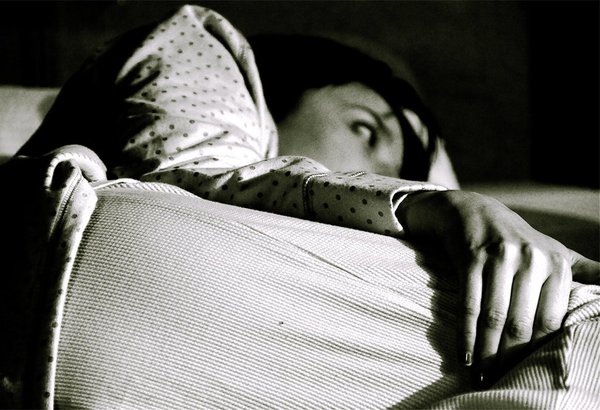In our high tech, fast-paced society, a lot of us wear our sleep
deprivation like a badge of honor, but not getting enough sleep on a
nightly basis can play havoc with your health. The National Sleep Foundation
describes insomnia as the “difficulty falling asleep or staying asleep,
even when a person has the chance to do so.”
When you suffer from insomnia, you experience fatigue and a lack of energy, and often struggle to focus on daily tasks. More extreme mood shifts can also be common. The sleep experts at the Mayo Clinic report that “sleeping less than seven hours a night is associated with weight gain, diabetes, high blood pressure and depression, among other health risks.
There are two types of insomnia: acute and chronic. Acute insomnia is when you have trouble sleeping for just a short period of time, while chronic insomnia is when it occurs several nights a week for months at time.
MORE HEALTH: From 'pink noise' to binaural beats, these sounds may help you sleep
According to the Cleveland Clinic, insomnia can also be categorized as primary which means that it is not related to any health issue or secondary where there is an underlying health problem at the root of it.
What causes insomnia? There are lots of things that can be contributing to your sleepless nights, including changes in your environment and daily routine like moving to a new home or starting a new job, especially shift work. Stress and anxiety about any type of rough patch in your life could also be a cause. Medication side effects and bad sleep habits are other common culprits.
Most of the time making some lifestyle changes can help reduce your episodes of insomnia. Here are some natural ways to improve the quality of your sleep (sources include National Sleep Foundation, Mayo Clinic and the Cleveland Clinic):
• Pay attention to your nightly routine. Do you go to bed at the same time every night? Do you follow certain bedtime rituals that help you relax in preparation for sleep? Following the same routine every night sends signals to your body and your brain that it is time for bed
• Be active during the day and incorporate some form of exercise at least a few days of week
• Resist the temptation to nap during the day. It will only make it that much harder for you to fall asleep at night
• Limit your alcohol and caffeine intake throughout the day
• Try not to eat or drink anything right before bed. If your stomach is really grumbling, just eat a small snack
• Practice relaxation techniques like meditation and yoga to destress
• Keep your bed for just sleeping or sex. Don’t bring the laptop or work to bed with you.
When you are having a sleepless night, try not to just lie there watching the clock. Get up and go do something in another room for a while until you feel sleepy. If it is worry about bills or a big project that is keeping you up, create yourself a to-do list to handle whatever is bothering you. You will sleep better knowing you have a plan already in place for the morning.
If the insomnia is persistent and nothing seems to help, however, talk to your doctor about what treatment options are available. Cognitive behavioral therapy and medicines like Eszopiclone (Lunesta) and Zolpidem (Ambien) are often prescribed for patients with chronic insomnia.


